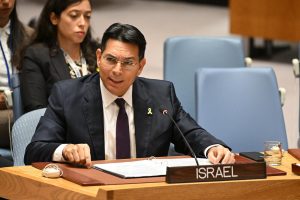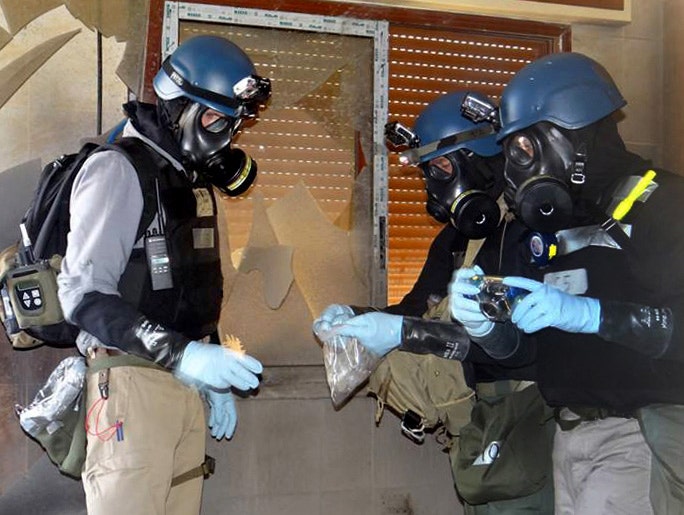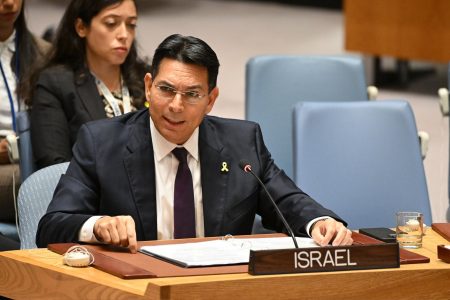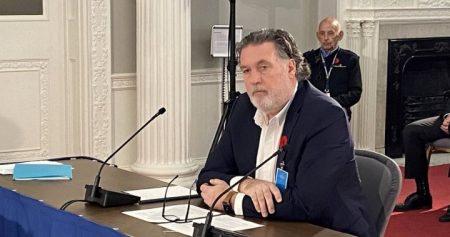The collapse of Bashar al-Assad’s regime after 13 years of brutal civil war marks a pivotal moment in Syrian history, ending nearly 54 years of his family’s dynastic rule. While the downfall of the dictatorship is celebrated by many Syrians and diaspora communities, concerns remain about the fate of Assad’s chemical weapons stockpile. The Organization for the Prohibition of Chemical Weapons (OPCW) is closely monitoring the situation, particularly the status of these weapons, given Syria’s history of non-compliance with international agreements. Despite joining the Chemical Weapons Convention in 2013 and claiming to have destroyed over 1,300 tons of chemical warfare material, doubts persist about the completeness of Syria’s declarations and the whereabouts of a significant amount of unaccounted-for weaponry. This uncertainty raises the specter of these weapons falling into the wrong hands, posing a significant proliferation risk.
The immediate concern revolves around the security of the chemical weapons sites and the potential for non-state actors, including terrorist groups like ISIS, to gain access to them. Hayat Tahrir al-Sham (HTS), the rebel group that spearheaded the offensive leading to Assad’s overthrow, has publicly stated its commitment to securing these sites and cooperating with the international community. However, the reliability of these assurances is questioned due to HTS’s past affiliation with al-Qaeda and its designation as a foreign terrorist organization. The group’s Salafi-Jihadist ideology and the fact that its leader, Abu Mohammed al-Jolani, is a wanted man with a $10 million bounty on his head further contribute to the skepticism surrounding their intentions.
The international community faces the complex challenge of verifying HTS’s claims and ensuring the secure handling of the chemical weapons. The OPCW’s previous inability to fully verify Syria’s declarations underscores the difficulty of this task. Moreover, the potential involvement of other actors, such as Russia, which granted asylum to Assad, adds another layer of complexity. Past incidents, including the use of chemical weapons by both the Assad regime and ISIS, highlight the devastating consequences of these weapons falling into the wrong hands. The possibility of terrorist groups acquiring and deploying these weapons raises the stakes considerably, posing a threat not only to the region but also globally.
Experts in nonproliferation and biodefense advocate for proactive measures, including joint action by the U.S. and Israel, to destroy any remaining Syrian chemical weapons capabilities. This approach aims to preempt the potential for these weapons to be used in terrorist attacks. Israel has already conducted strikes on suspected chemical weapons sites, demonstrating a willingness to take unilateral action. While the U.S. has targeted ISIS camps and operatives, it has not yet directly targeted Assad’s chemical weapons facilities. The decision of whether or not to engage in such targeted strikes involves complex geopolitical considerations and potential risks.
The legacy of chemical weapons use in the Syrian civil war is a grim reminder of the human cost of these weapons. The Assad regime’s repeated use of chemical weapons against its own people, including the horrific sarin gas attack in Ghouta in 2013 that killed over 1,400 people, stands as a stark example of their devastating impact. The OPCW has documented numerous instances of the regime’s use of nerve agents, choking agents, and blister agents, demonstrating a blatant disregard for international law and human life. These atrocities underscore the importance of holding the perpetrators accountable and preventing future use of chemical weapons.
The current situation in Syria requires a coordinated international response to address the pressing issue of securing Assad’s chemical weapons stockpile. The OPCW, the U.N., and individual countries must work together to verify the status of the weapons, secure the sites, and prevent their proliferation. The uncertain nature of the political landscape in Syria, coupled with the involvement of various actors with conflicting interests, makes this a particularly challenging task. The potential consequences of inaction, however, are dire, as the possibility of chemical weapons falling into the hands of terrorist groups presents a grave threat to regional and international security. A decisive and coordinated approach is crucial to mitigating this risk and preventing further human suffering.










